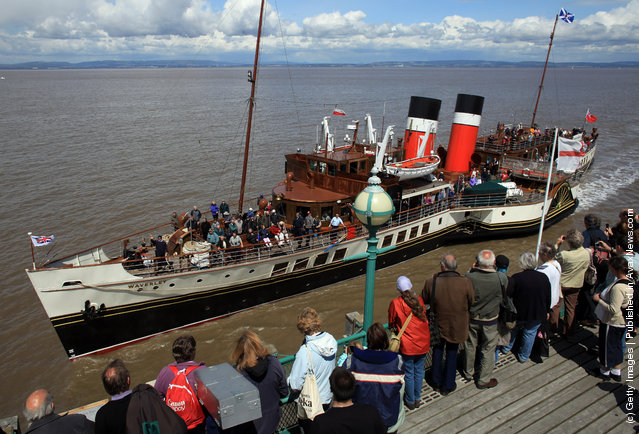









Go to Blogger edit html and find these sentences.Now replace these sentences with your own descriptions.
Go to Blogger edit html and find these sentences.Now replace these sentences with your own descriptions.
Go to Blogger edit html and find these sentences.Now replace these sentences with your own descriptions.
Go to Blogger edit html and find these sentences.Now replace these sentences with your own descriptions.
Go to Blogger edit html and find these sentences.Now replace these sentences with your own descriptions.





















Investors certainly care about how the businesses they invest in are run, and a glance at the chart will tell you why. When there are serious failings in the boardroom, such as those demonstrated this week at Kazakh miner ENRC, shareholders eventually feel it where it hurts most.
ENRC has underperformed the rest of the UK mining sector by a significant margin over the past year despite more than doubling its profits in 2010 on the back of the global commodities boom. The chart shows why corporate governance cannot be an add-on for a fund manager. It is a fundamental part of the process which, in this case, has unsurprisingly led to many investors giving the company a wide berth.
Most examples of poor corporate governance are less glaring than the unedifying spectacle of last Wednesday's defenestration of two of ENRC's non-executive directors. Sir Richard Sykes and Ken Olisa were shown the door, it would seem, for having the temerity to do their job – holding the executives to account. It was the first time in 10 years that a director of a FTSE 100 company has been voted off the board at an annual meeting.
At the heart of this debacle is the dominance of a trio of founding shareholders who pledged a hands-off approach when the company floated in London in 2007 but have since ignored that promise. Together with fellow FTSE 100 miner Kazakhmys and the Kazakh government, the three have a stranglehold on the company's shares, fewer than 20pc of which are freely available to outside shareholders.
This would ordinarily have precluded a float in London, and a special exemption had to be granted to allow it to go ahead on the grounds the company was big enough for the few shares in the free float to represent a liquid market. The events of the past few days have cast doubt on the wisdom of that decision.

Osborne has used this as a platform to justify his austerity plans, arguing that though the UK has a higher deficit – the annual shortfall in the budget between revenue and expenditure – than crisis-hit Greece, it pays similar interest rates on its national debt as Germany, a bastion of fiscal rectitude.
Economists are split over whether the UK was in real danger. The financial crisis certainly blew an £84bn-a-year hole in the UK's public finances as tax revenues suffered, according to the Institute for Fiscal Studies (IFS). But unlike our debt-laden European neighbours using the euro, who have seen their borrowing costs soar, the UK sets its own monetary policy to suit the country's individual needs. Also, much of the UK Government debt consists of long-term bonds, which avoids the need to constantly return to the markets to raise more funds.
"There was never a real risk of a sovereign debt crisis in the UK. At the time of the May 2010 election the similarity with the Greek economy was significantly overblown," says Simon Kirby at the National Institute of Economic and Social Research (NIESR).
Kevin Daly and Adrian Paul at Goldman Sachs are convinced that a debt crisis was a risk, although the UK's borrowing costs show investors never lost confidence in Britain's ability to fund its borrowing. "Bond yields can suggest everything is fine, until it is not," they say.
It is unknowable what would have happened if the Coalition had reacted differently. But the yield on the UK's 10-year bond is now slightly lower than it was a year ago, at around 3.3pc against 3.6pc. That reveals that investors in sovereign debt feel more confident about the UK than they did a year ago.

There are certain stages in life, such having a young family or retirement, where financial planning is important.
We understand that there can be lots to think about but we can help making the most of your finances as simple and straightforward as possible, so you can focus on making the most of your life.
A qualified financial adviser is usually the best person to help you make plans for your money. That’s why we have so many Financial Planning Managers working for NatWest, all dedicated to helping our customers to make the most of their money.
And because we believe in Helpful Banking, it won’t cost you a penny to find out how best to look after your pounds – our Financial Planning appointments are free.
The first meeting takes around 45 minutes. You’ll talk about your life now, plans for the future, and which dreams you’d like us to help turn into reality. Everything matters. From long-term savings options for your dream home to pension arrangements that can help you make the most of retirement. Whatever your plans are, we could help.
Starting out
Getting married? It’s the start of your lives together. So will you keep your finances separate or explore the benefits of pooling your money?
Our Financial Planning Managers can advise you, either together or in individual meetings – and will make sure that your personal finances are always kept confidential. You can discuss any aspect of long-term personal finance, from investments and protection to retirement plans for your life together.
Moving on
For young families, it can be hard to think about planning for the future when there’s so much to pay for right now. Our Financial Planning Managers understand that finances can be stretched, so they’re keen to help find easy ways for you to save money for the long term. They could help you make sure savings are tax-efficient and get the right type of protection in place, should your circumstances change.
Building up
Investing already, but concerned about the economy? It’s important to be sure that your money is working hard to achieve your goals. With our Financial Planning Managers’ help, you can review your funds’ performance, your circumstances and attitude to risk on a regular basis. We’ll help you explore investment opportunities that continue to support your long term aims, and we may be able to help you save money by reviewing your plans, too.
Slowing down
Have you thought about your finances when you retire? Our Financial Planning Managers can review your current plans to make sure that you’re making the most of your long term savings for retirement. Robust plans are important, and it’s never too early to start planning for a happy retirement.

I’ve been thinking of regenerating my brain. I don’t suppose it will take long. I was awakened to the thought by a piece of driftwood and the Thames River Police. Occasionally, as I sit at my desk, the police boat roars past and its wake causes my houseboat to shake as if it feels suspected of whatever crime is afoot or afloat. I don’t suppose there is as much water-related crime as there used to be.
When the force was first founded in 1798 there were some 33,000 workers plying a river trade of which the authorities estimated that about 11,000 of them were “on the game”. I can only imagine it was a slow game as this, the first police force in the country of any kind, managed to catch criminals by simply rowing about.
As they bombed past this week a piece of driftwood banged into my boat and made me think about crime and the philosopher Jeremy Bentham, who died this week in 1832. Jeremy assisted with the founding of the London riverine constabulary at a time when having police at all was considered to be something reserved for feckless foreigners. It was fine for France or even Greece, countries the British rather presumed to be awash with people who required apprehending, but it was not required at home.
Bentham is an interesting man who rather confirms the notion that predicting the future is a parlous business. Back in 1776 when the Americans were revolting, he wrote a paper in which he declared “the age we live in is a busy age; in which knowledge is rapidly advancing towards perfection”.
With the smugness of hindsight we now know how ignorant we are. Scientists have had to build what is in effect the world’s largest underground salad spinner in Switzerland, the Hadron Collider, in order even to try and understand the basics.
Certainly we have little idea how the brain works. It was today in 2003 that an Arkansas man called Terry Wallis spoke for the first time in nearly 19 years. Wallis was not intentionally hermit like. He had been in a car accident in 1984 which left him in what seemed a persistent vegetative state with virtually no chance of recovery. Many years of coma later, he unexpectedly said “Mom” and has carried on talking ever since. Scientists believe that Terry’s brain may have actually regenerated itself; that it has very gradually “developed new pathways and completely novel anatomical structures to re-establish functional connections, compensating for the brain pathways lost in the accident”.
The great thinker Bentham himself cannot have known that thinking itself can be re-established once damaged. Instead he came close to positing that we could pretty much close the chapter on science, thus leaving us time to sit about and contemplate morals. Sadly, history shows us that having the time doesn’t necessarily mean one’s thoughts will be moral.
Back in 1099 there was a hermit living on the Mount of Olives. I don’t know what his name was. Let’s call him Frank. I would have thought “hermit basics” involved a dedication to silence but Frank couldn’t keep his mouth shut. It was today in 1099 that the leaders of the First Crusade are said to have visited him to seek advice. If Frank had to speak at all, the sentence “I’ve been living alone with all these olives for years, try my salad” would have been fine but instead he urged the crusaders to assault Jerusalem.
This they did enthusiastically, massacring and pillaging on a such a grand scale that the ripples still echo today. If Frank had spent less time contemplating criminal activity and a bit more perfecting, say, a tapenade recipe, the world would’ve been a better place.
What turns some minds criminal is a subject for debate and may help make the criminal intriguing. It was today in 1962 that the world woke up to the news that three convicts had used spoons to dig their way out of the infamous prison Alcatraz in San Francisco Bay. Bank robber brothers Clarence and John Anglin and armed robber Frank Morris managed to tunnel their way out, before departing the rock island on a raft made of driftwood and raincoats. No one knows if the three criminals made it to the mainland. It is most likely that the ne’er-do-wells drowned but, in a pleasing tribute to police patience, the FBI are apparently still looking for them.
Bentham is easier to track down. A seated replica of his corpse is preserved in a glass display case at University College, London. It is said that there was an occasion when Bentham was replaced by a simple card which read: “Gone on holiday”. In fact he was undergoing restoration work following a rumoured beetle invasion, and who among us has not at some time concealed the true reason for an absence?
It made me think that perhaps, although I lack beetles to blame, I too need a break. Perhaps I could make a raft of my driftwood and an old mac. How lovely to sit upon the Thames eating tapenade while thinking improving thoughts and waving at the police as they scoot past. If you should see me sitting silently upon the river, please don’t speak. I’m busy regenerating my brain.

"Two members of the armed organisations were killed, large numbers of them arrested, and lethal weapons in their possession were seized," it said, adding that army units had defused bombs and explosive charges planted by gunmen on the bridges and roads of the town.
Tanks and helicopters shelled and machinegunned a northern town on Sunday in a drive to crush an uprising against President Bashar al-Assad that has led thousands of refugees to flee to Turkey.
Forces commanded by Assad's brother Maher stormed Jisr al-Shughour from the south, residents said, copying tactics used in other cities and towns to suppress street protests demanding political freedom and an end to Assad's autocratic rule.
"They are using up to 150 tanks and armoured vehicles. Jisr al-Shughour is small and there is not even space to park all this armour. The shelling is nonstop now. Two helicopters are flying overhead and firing their machineguns," one resident said.
